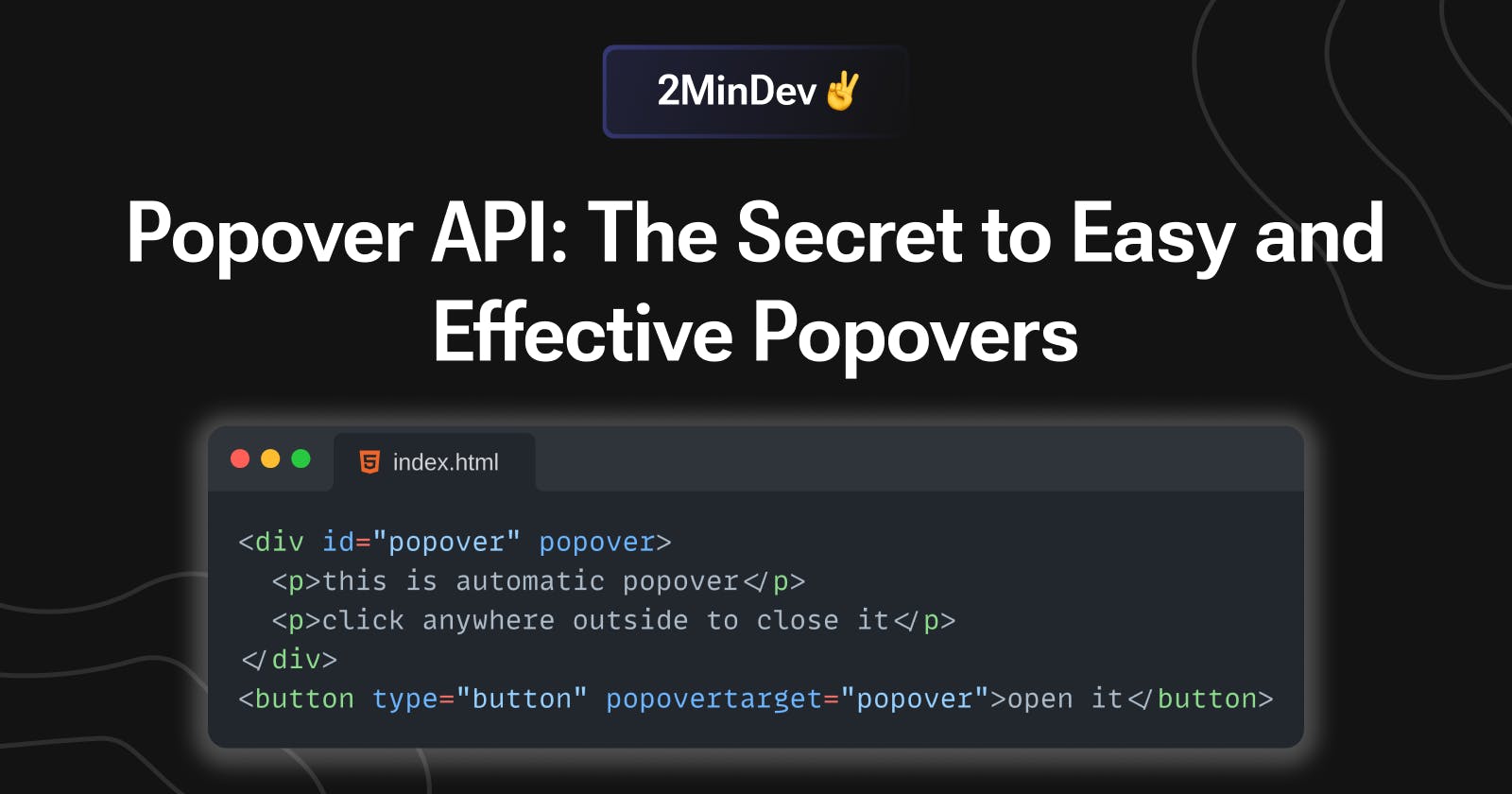Popover API: The Secret to Easy and Effective Popovers
Lets learn about Popover API which makes popovers child's play
Popovers are a convenient and versatile way to display information or dialogs about elements, especially when space is limited. But creating them can be a headache, but no more the Popover API handles everything for you, including opening and closing, accessibility, keyboard binding etc.
Popover API
It all starts with a single attribute popover which we have to put on any element we want to make popover of.
Let's learn 3 simple steps to create your first popover
Add
popoverattribute to the element which you want to make popoverassign an
idto itcreate a button that you want to work as a trigger and assign a
popovertargetattribute with a value equal to theidof the popover element and that's it!!
<!--trigger-->
<button type="button" popovertarget="popover-element">show it</button>
<!--popover-->
<div id="popover-element" popover>
this is over first popover
</div>
Manual Popovers
Up until this point we have created automatic popovers which will be closed if we click anywhere outside it, but we can also manually control this opening and closing of it and disable default behavior using popover=manual
let's learn how we can implement it
add
popover=manualattribute to the element which you want to make popover ofassign an
idto itcreate a button that you want as show button and add 2 attributes
popovertargetequalsidof the popover element andpopovertargetaction = showcreate another button that you want as hide button and add 2 attributes
popovertargetequalsidof the popover element andpopovertargetaction = hide<div id="popover-manual" popover="manual"> <button popovertargetaction="hide" popovertarget="popover-manual">x</button> <p>this is manual popover</p> <p>click on x button to close it</p> </div> <button type="button" popovertarget="popover-manual" popovertargetaction="show"> open it </button>
you can play with it in the following playground and for more information refer to this article
Pitfall
It works on Chrome, Edge and Safari as of now
Thanks for reading.

